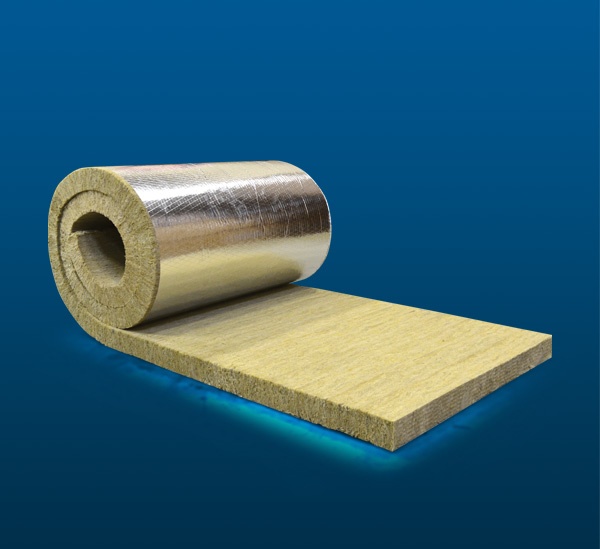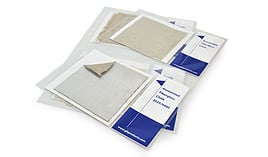Calcium silicate is considered a thermal insulation and is composed of hydrous calcium silicate, which contains reinforcing fibers and has a natural white color. It is supplied in block form for the fabrication of insulation for mechanical piping applications. It is often commonly used as a safe alternative to asbestos for high-temperature insulation materials.

Advantages:
- Operating temperature between 80°F – 1,700°F
- Dense with exceptional strength
- Durability
- Inorganic and non-combustible
- Asbestos free
Calcium silicate is one of the primary materials for insulating piping, but the high cost of the material is considered a negative. The material is susceptible to shattering, fracturing or cracking during installation which adds to the cost.
Calcium silicate has a high initial investment cost, leading many organizations to use stone wool (mineral wool) as fabricated piping insulation. Stone wool is known to be an excellent insulator and is used in a wide array of products and applications. The material is fire and moisture resistant, easy to cut, has excellent thermal performance ranging up to 1,400°F and is an effective noise barrier.
Key industrial insulation applications for stone wool:
- Piping
- Industrial buildings
- Furnaces
- Boilers
- Distillation columns, vessels and tanks
Due to a high thermal range and lower cost, stone wool is a viable alternative for calcium silicate for insulating industrial piping.
While there is a wide range of industrial insulation available on the market, each insulation has unique characteristics and carries with it unique costs. To discover more information on the cost savings of using stone wool over calcium silicate download our FREE guide.


